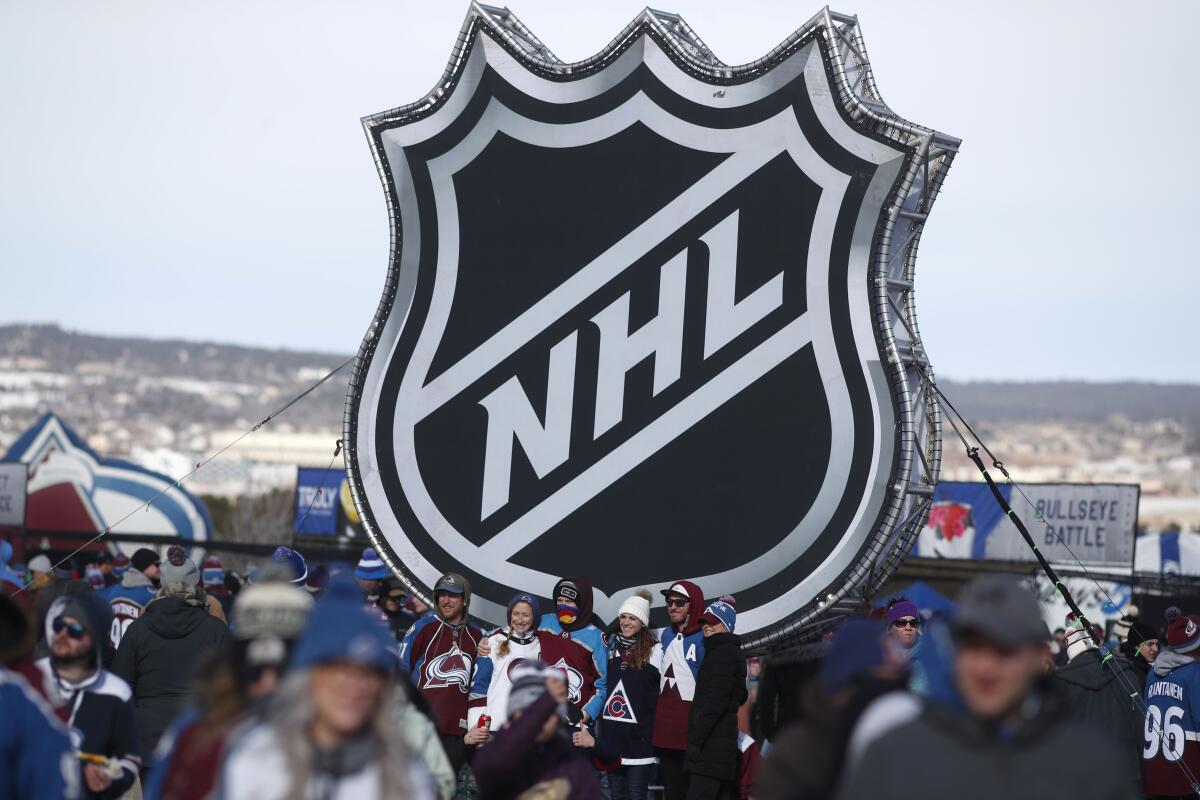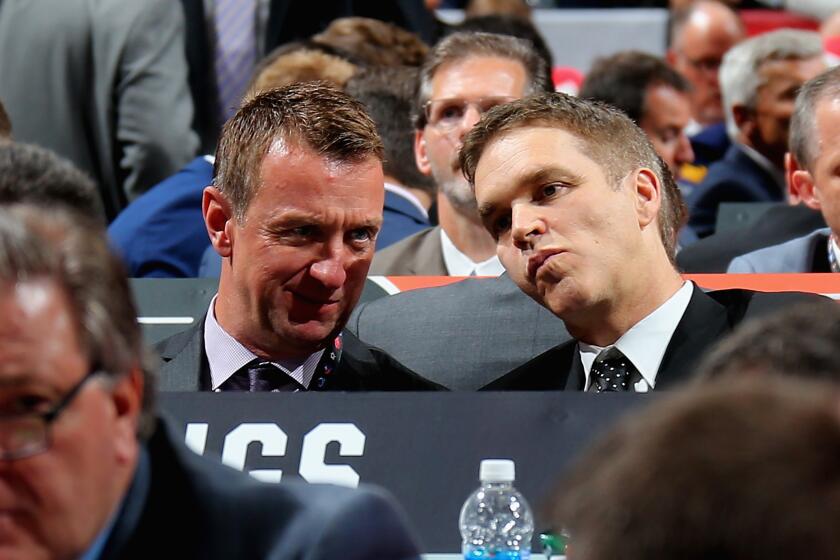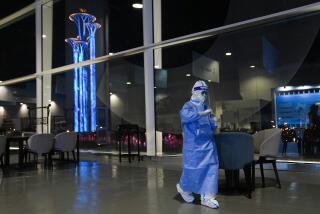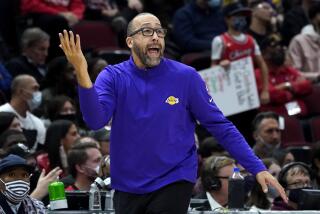NHL says 23 players tested positive for COVID-19 since start of small-group workouts

- Share via
The NHL said 23 players had tested positive for COVID-19 since players were allowed to report to clubs’ training and practice facilities for voluntary, small-group workouts. The league said in a news release 396 players had reported for workouts and that 2,900 tests had been administered as of Monday. The league won’t provide names of those who tested positive.
“In addition, since June 8 [the opening of Phase 2], the League is aware of 12 additional Players who have tested positive for COVID-19 outside of the Phase 2 Protocol,” the release said. “All Players who have tested positive have been self-isolated and are following CDC and Health Canada protocols.”
Training camps will be held in each team’s home city with a maximum of 30 skaters and an unlimited number of goaltenders permitted to participate. Teams must give the league a list of participants by Thursday.
All players must submit to rigorous procedures that include COVID-19 testing 48 hours before they arrive at the training facility, testing every other day and following social distancing procedures. The use of hot and cold tubs, saunas and steam rooms is prohibited, and teams must follow strict cleaning and disinfecting requirements in their facilities.
Anyone who exhibits symptoms of COVID-19 during Phase 3 will be told to consult the team medical staff and self-isolate. Anyone who tests positive will be isolated from the team. Players who test positive will be designated unfit to play and have “sustained an illness arising out of the course of his employment as a hockey player.” Club medical personnel will conduct contact tracing to determine who might have had contact with an infected player.
Kings general manager Rob Blake has a long offseason to-do list. He’s also got a lot of extra time to make his decisions because of the COVID-19 pandemic.
The protocol document for Phase 4 emphasizes each person’s responsibility to obey all aspects of the protocol. “While comprehensive, the steps outlined in the Protocol cannot mitigate all risk,” it reads in part. Teams will be situated in a Phase 4 Secure Zone that will include their hotel, restaurants, their practice rink and “other demarcated areas” for entertainment. Anyone who leaves the secure zone may have to undergo testing and a quarantine before they can re-enter.
Players’ families will be permitted to join them during the conference finals and Stanley Cup Final if those family members agree to daily testing and to follow medical protocols. The document also says social excursions will be arranged if health standards can be maintained.
Violations of the protocol can result in fines and/or loss of draft picks for teams, the termination third party vendors’ contracts, and dismissal of staffers from the Secure Zone.
Players will be permitted to opt out of Phases 3 and 4 “without discipline or penalty,” according to the protocol documents. Those players must notify their clubs, the league and the NHLPA within 72 hours of the end of the ratification process if they want to opt out.
In addition, the union and the league each can notify the other during Phase 3 or Phase 4 if one has reason to believe that player health and safety might be jeopardized. In that case, the league, union, NHL event medical director, NHLPA medical consultant and infectious disease experts would be jointly consulted. The basis for a decision to move, postpone or cancel games “shall be whether the commencement or continuation of the Game(s) would likely create a material risk to Player health and safety and/or jeopardize the integrity of the competition,” the Phase 4 document states. If the NHLPA is unhappy with the decision it can pursue arbitration.
More to Read
Go beyond the scoreboard
Get the latest on L.A.'s teams in the daily Sports Report newsletter.
You may occasionally receive promotional content from the Los Angeles Times.









